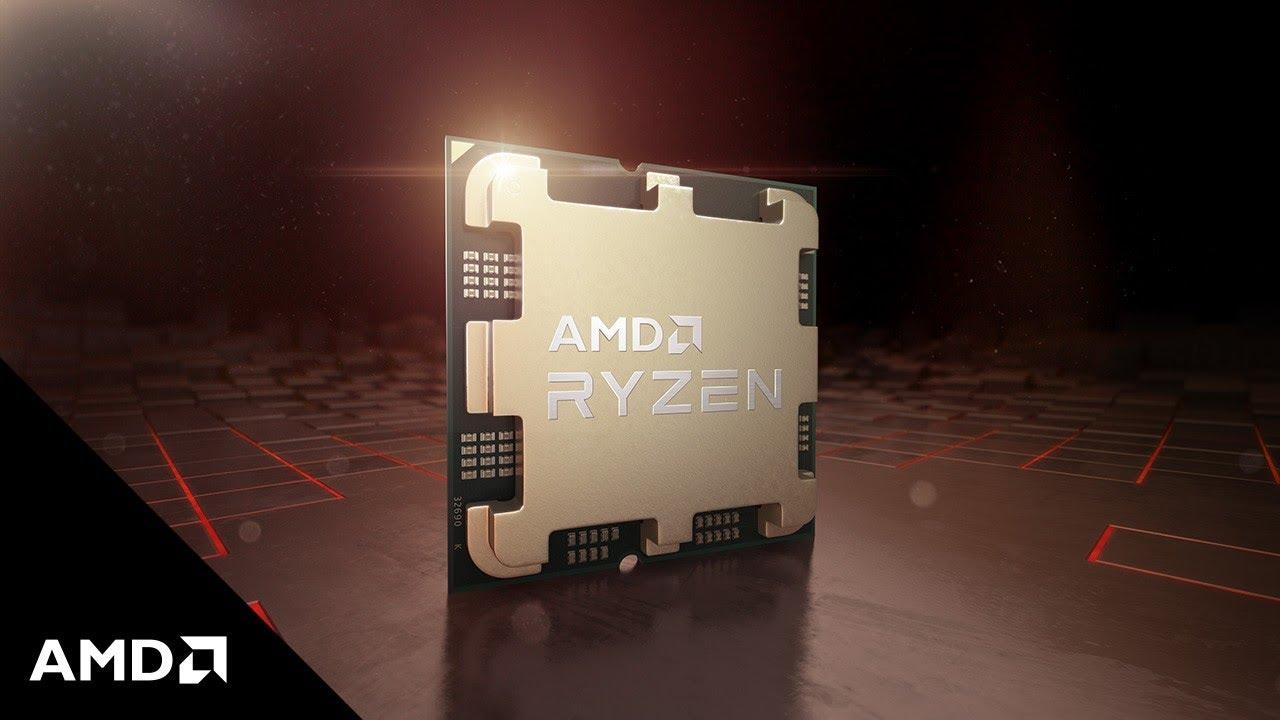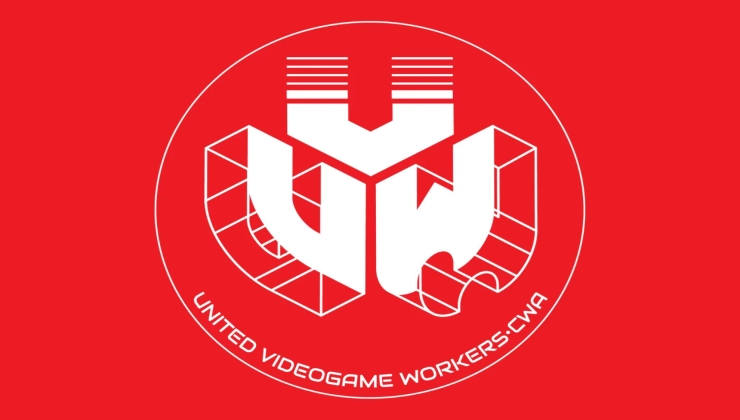AMD has revealed their next-generation Zen 4 processors with the Ryzen 7000 series that will be launching September 27.
They're saying it will give a "double-digit" IPC (instructions per cycle/clock) uplift compared to the previous generation. AMD are also claiming they will be a lot more efficient than before, leveraging the power management tech from their mobile processors.
Here's the models they've announced for now:
| Model | Cores/Threads | Boost / Base Frequency | Total Cache | PCIe | TDP | Price | |
| AMD Ryzen 9 7950X | 16C/32T | Up to 5.7 / 4.5 GHZ | 80MB | Gen 5 | 170W | $699 | |
| AMD Ryzen 9 7900X | 12C/24T | Up to 5.6 / 4.7 GHZ | 76MB | Gen 5 | 170W | $549 | |
| AMD Ryzen 7 7700X | 8C/16T | Up to 5.4 / 4.5 GHZ | 40MB | Gen 5 | 105W | $399 | |
| AMD Ryzen 5 7600X | 6C/12T | Up to 5.3 / 4.7 GHZ | 38MB | Gen 5 | 105W | $299 | |
This also comes with the new AM5 platform with dual-channel DD5 memory support, up to 24 PCIe 5.0 lanes and they say AM5 will be supported through to 2025. So you're going to be good for the next few generations of AMD processors with AM5. Installation they said will be easier than before with the 1718 pin LGA socket, it supports AM4 coolers too.
These are the chipsets that will be offered:
- AMD X670 Extreme: Bringing the most connectivity and extreme overclocking capabilities with PCIe 5.0 support for graphics and storage.
- AMD X670: Supporting enthusiast overclocking with PCIe® 5.0 support for storage and optional graphics support.
- AMD B650E: Designed for performance users with PCIe® 5.0 storage support and optional graphics support.
- AMD B650: Designed for mainstream users with support for DDR5 memory and optional PCIe® 5.0 support.
AMD X670 and X670E will be available in September but the B650E and B650 set land in October.
We also got a brief teaser of their next-generation GPUs with RDNA3 as well. During the event AMD CEO Dr. Lisa Su mentioned it uses 5nm chiplets, to provide a "more than 50%" performance per watt uplift compared to RDNA2.
You can watch the full event below:

Direct Link
I'm old enough to remember building my own AMD Athlon 64 3000+ machine, does that count?Twice in recent memory, with current AM4... 1800/3700/5800.I think it's cool, but support until 2025... That seems a little short. Is it?
I mean most won't get these until 2023, and maybe I'm weird, but I don't buy hardware with the intent to replace it in just a few years.
It should mean that they will bring new processors for the platform in 2025 - not that you cannot use your old processor anymore after 2025. I cannot think of a case where I replaced a processor, but not mainboard, RAM, ...
Multiple times more in ancient history, which many of you may not remember, or weren't even born. I remember several generations of 3- and 486es, and a couple of Athlons, all running fine in the same main boards as their predecessors, and often more than one upgrade. I have always been assembling my machines myself, and I have always hated when I had to upgrade the main boards... and still do.
As such, I agree, "until" 2025 is rather short. If you read it critically, that covers two years. Barely enough for one end-of-life upgrade.
64-bit support with Linux at the time, and an almost non-exist windows 64-bit.
I'm old enough to remember building my own AMD Athlon 64 3000+ machine, does that count?
64-bit support with Linux at the time, and an almost non-exist windows 64-bit.The Good ol' days!
OK boomer... my first AMD was an 486, but you do you...
I cannot think of a case where I replaced a processor, but not mainboard, RAM, ...Twice in recent memory, with current AM4... 1800/3700/5800.
Multiple times more in ancient history, which many of you may not remember, or weren't even born.
Got my first computer in 1984, so... :)
I remember several generations of 3- and 486es, and a couple of Athlons, all running fine in the same main boards as their predecessors, and often more than one upgrade. I have always been assembling my machines myself, and I have always hated when I had to upgrade the main boards... and still do.
I keep and kept my CPU longer and often only exchanged the GPU. My last three CPUs were Q6600 (IIRC), i5-3570K and Ryzen 7 3700X. (Always wanted to write that stuff down so I don't forget my personal computer history.)
I guess, depending on your personal building history, a short socket life can be a bummer. I certainly remember people being very mad at AMD and Intel for changing their sockets "too soon". If 2 years of socket life is normal now, I guess it's expected to replace everything on upgrade.
I know socket life used to matter to me at one time, being younger, having more money and expecting to upgrade the processor at least one during a lifetime.
But in reality, I tended to hold onto hardware much longer, way beyond the lifetime of a socket. I guess if that's typical behavior, I could see why they wouldn't invest in long term sockets, since it'll mostly be useless.
Also, how do you apply thermal paste on that heat spreader plate? I.e. won't it go into those openings?
I saw a picture of a Ryzen 7000 CPU with thermal paste residue from a removed cooler, and it looks like it'll work completely fine. Cannot find the pic anymore, I'm afraid, but it applies very nicely from what I saw.
Sorry guys, didn't mean to cause any controversy.
I think it's all fine, just exchanging some experiences. YOou brought up an interesting topic IMHO.
I know socket life used to matter to me at one time, being younger, having more money and expecting to upgrade the processor at least one during a lifetime.
There might have been technical reasons as well. Back then when CPUs actually got double the speed after two years, not only some extra cores (which many games will find hard to make additional use of).
There might have been technical reasons as well. Back then when CPUs actually got double the speed after two years, not only some extra cores (which many games will find hard to make additional use of).
Very true. I'd also imagine the CPU design was probably much simpler 10+ years ago, which probably meant it was easier to stay in one socket for longer.
I guess on the one hand. Looking at my machine and the "giant" Noctuna cooler covering half my board.... I'm can kinda see why I'd upgrade everything. Just getting to the CPU is enough to make me want to toss everything out, lol
I do not want to be conspiracy theorist, but we speaking about MS here. Hell, even Apple have better track record in FOSS community, for example helps Asahi Linux team by not making their job harder.
And I hope Pluton will be cracked or at least can be bypass like Secure Boot.
I put my money where my mouth is and just pulled the trigger on both a 5900X and a RX6800XT for my existing ASUS Prime B550, which may get upgraded to a TUFF X570. That should handle everything I play at 4K well enough. And it will last a good two-three years which should be long enough for all of this to shake out.
Guys, it's VERY likely that the CCP launches an invasion of RoC(Taiwan) very soon
Anything can happen, but I doubt it. They are dealing with all kind of economic problems now. Outright war will ruin them. Unless they downgrade to Putin level of cretinism, they won't do it. But then again, who knows.
Last edited by Shmerl on 5 Sep 2022 at 2:35 am UTC
Guys, it's VERY likely that the CCP launches an invasion of RoC(Taiwan) very soon, like before Thanksgiving or even Halloween.
I bet that this will not happen (in either time frame).
Want to wager one Linux native game?
Guys, it's VERY likely that the CCP launches an invasion of RoC(Taiwan) very soon, like before Thanksgiving or even Halloween.
Relax... Both side won't and never want going to war. Come on, both sides are too busy counting money profiting each other. No one wants to wish anything bad to their business partner.
EXCEPT, if some "outsiders" who want to incite them for those "outsiders" profit.
Relax... Both side won't and never want going to war. Come on, both sides are too busy counting money profiting each other. No one wants to wish anything bad to their business partner.
I think the same. (...though I thought similar for Russia. But yes, there's huge differences.)
EXCEPT, if some "outsiders" who want to incite them for those "outsiders" profit.
No outsider can make China go on war. If they do it, it's on them and nobody else.









 How to set, change and reset your SteamOS / Steam Deck desktop sudo password
How to set, change and reset your SteamOS / Steam Deck desktop sudo password How to set up Decky Loader on Steam Deck / SteamOS for easy plugins
How to set up Decky Loader on Steam Deck / SteamOS for easy plugins
See more from me